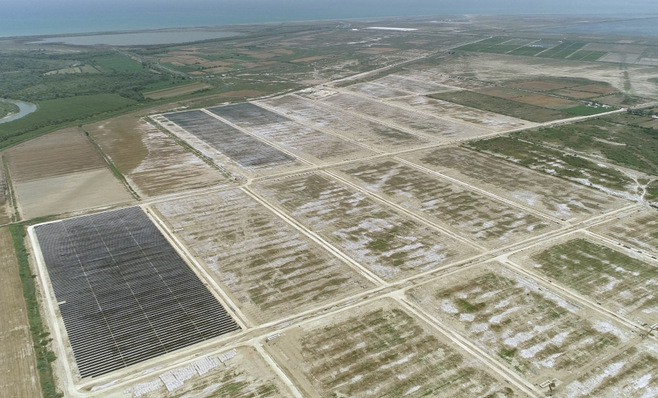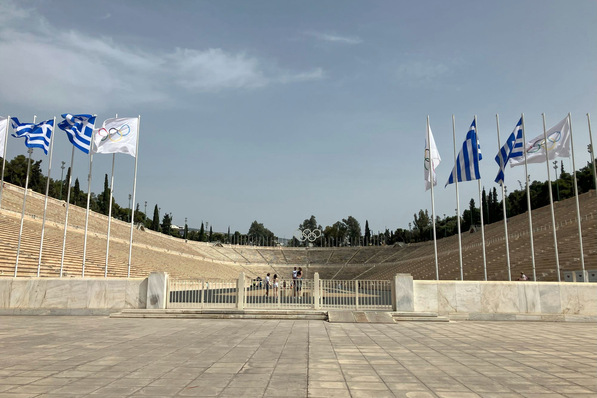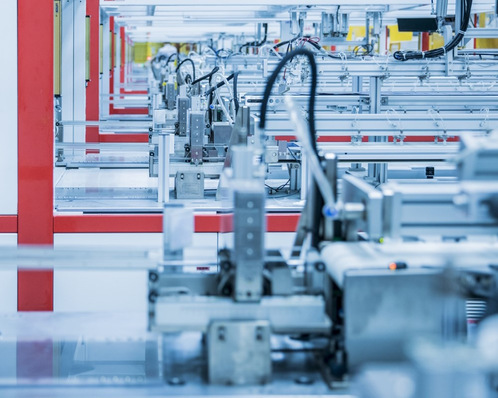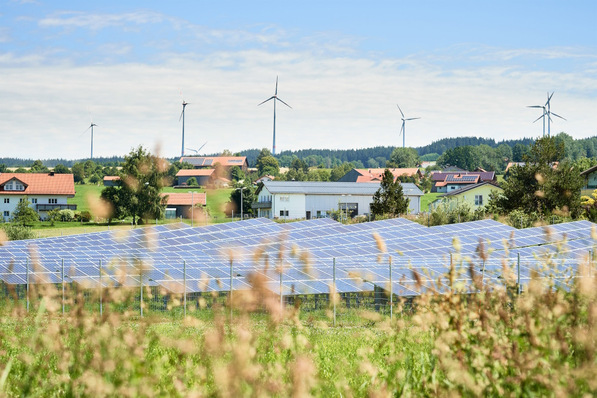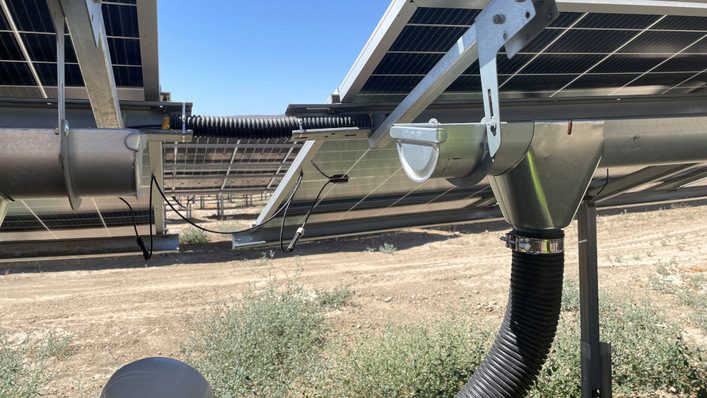The award ceremony was held online as part of The smarter E Industry Days from July 21 to 23, 2021, when the Intersolar Award and ees Award innovation prizes were presented too. Lots of the winners and finalists will be showcasing their innovations at The smarter E Europe Restart 2021 at Messe München from October 6 to 8.
This year, companies were once again rewarded for their pioneering solutions with the most important innovation prize in the energy industry, The smarter E Award. Projects completed in the areas of solar, storage, and energy management took center stage in the Outstanding Projects category. And it was a home hydrogen solar energy storage system that wowed the panel of experts this year in the Smart Renewable Energy category. On July 21, 2021, the winners of The smarter E AWARD were honored in a live-streamed virtual award ceremony with an international audience. Anyone wanting to check out the award-winning projects and speak to the winners and finalists will be able to catch them at The smarter E Europe Restart 2021 at Messe München from October 6 to 8.
The Winners in the Outstanding Projects Category
BayWa r.e. Solar Projects (Germany): Agrivoltaic System Protects Berry Production
Munich-based BayWa r.e. provides integrated, sustainable energy solutions and management systems for commercial and industrial clients. Their “Fruitvoltaic” agrivoltaic project is a 2.7- megawatt PV installation at a raspberry farm covering over three hectares in the Netherlands. Special semi-transparent PV modules enable a higher light transmission and protect the fruit against direct sunlight, rain, and hail. The entire subsystem of the agricultural structure is integrated into the elevated PV mounting system. The project is being documented in partnership with Wageningen University.

BayWa r.e.
The international panel of experts voted unanimously for this exemplary project, underlining its global potential. In addition to its proven ability to boost berry yield by 6.5 percent and generate revenue via photovoltaics, this agrivoltaic installation replaces the plastic sheeting usually used when cultivating berries, minimizes pesticide use, and increases water use efficiency. The panel of experts also pointed out that this BayWa r.e. project could help diffuse land-use conflicts between the energy and agricultural sectors.
Boreal Light (Germany): WaterKiosk Supplies Clean Water to Covid-19 Wards in Hospitals
Boreal Light was founded in Berlin in 2015 and specializes in renewable energy solutions for water treatment facilities, designing and manufacturing solar water desalination and purification systems for off-grid communities around the globe. WaterKiosk is a water supply project that, in the past year, has helped mitigate the impact of the coronavirus pandemic by supplying over one million liters of clean water every day to 28 hospitals and clinics across Kenya and Tanzania. Running completely on solar power provided by 10- to 70-kilowatt rooftop PV arrays with a total capacity of 266 kilowatts, this outstanding project supplies drinking water for patients and sanitary facilities while also providing wastewater treatment on Covid-19 wards.

Boreal Light
The panel of experts highly commends the enormous social and environmental impact of WaterKiosk, including its ability to be rolled out to other communities immediately. Life-saving not only in a pandemic, this humanitarian solution offsets 18,000 tons of CO2 per year. It has huge potential as global water shortages worsen.
Siemens Gamesa Renewable Energy (Spain): Full-Scale Electrothermal Energy Storage System Filled with Volcanic Rocks
Founded in 2017, Siemens Gamesa Renewable Energy has a product portfolio that includes offshore and onshore technology and service solutions. Future Energy Solution – their research and development project in Hamburg, Germany – is the world’s first full-scale electrothermal energy storage, or ETES, system. Filled with 1,000 tons of volcanic rocks, the ETES demonstrator can store up to 130 megawatt hours of heat for several weeks. The heat can either be used immediately or stored and then converted back into electricity using a conventional steam turbine.

Siemens Gamesa Renwable Enrgy
The potential of the system to be used for transforming conventional power plants into emission-free long-term renewable energy storage power plants is commended by the panel of experts. 80 percent of the components used in the project are off the shelf. This is a technology that can be implemented with relative ease, scalable, and could have a remarkably high impact. According to the panel of experts: “This is exactly the kind of solution needed to achieve a world-wide transition to renewable energy.”
The Winner in the Smart Renewable Energy Category
The Smart Renewable Energy category focuses on charging and energy management as well as sector coupling with a view to optimizing the use of PV systems. This year, the prize was awarded to a home hydrogen solar energy storage system.
HPS Home Power Solutions (Germany): Storage of Solar Energy as Green Hydrogen
Founded in 2014, Berlin-based HPS develops and produces systems for storing and using solar energy in detached and semi-detached homes. Picea is a home energy storage system with a 25- kilowatt-hour battery for short-term storage and alkaline electrolysis for seasonal chemical energy storage in the form of green hydrogen. A fuel cell is used to generate power from the stored hydrogen when demand exceeds the supply from the PV installation or battery subsystem, and to operate a heat pump. The system uses the waste heat from the electrolysis and the fuel cell, thereby achieving a total utilization rate of 90 percent. Picea provides around 6,000 kilowatt hours of electrical energy and 3,000 kilowatt hours of thermal energy, saving close to three tons of carbon dioxide emissions per year per house.
The panel of experts commends the pioneering development of this product, including its potential to be scaled up for larger applications and enable the use of renewable energy in larger residential units or districts. This intelligent solution for seasonal energy storage allows for a decentralized, independent, and carbon-free energy supply form in the home all year round. According to the panel of experts: “This product could pave the way for a wider adoption of seasonal storage, contributing to a secure transition to renewable energy.” (hcn)
We will cover the winners of the ees Award 2021 and the Intersolar Award 2021 seperately.


